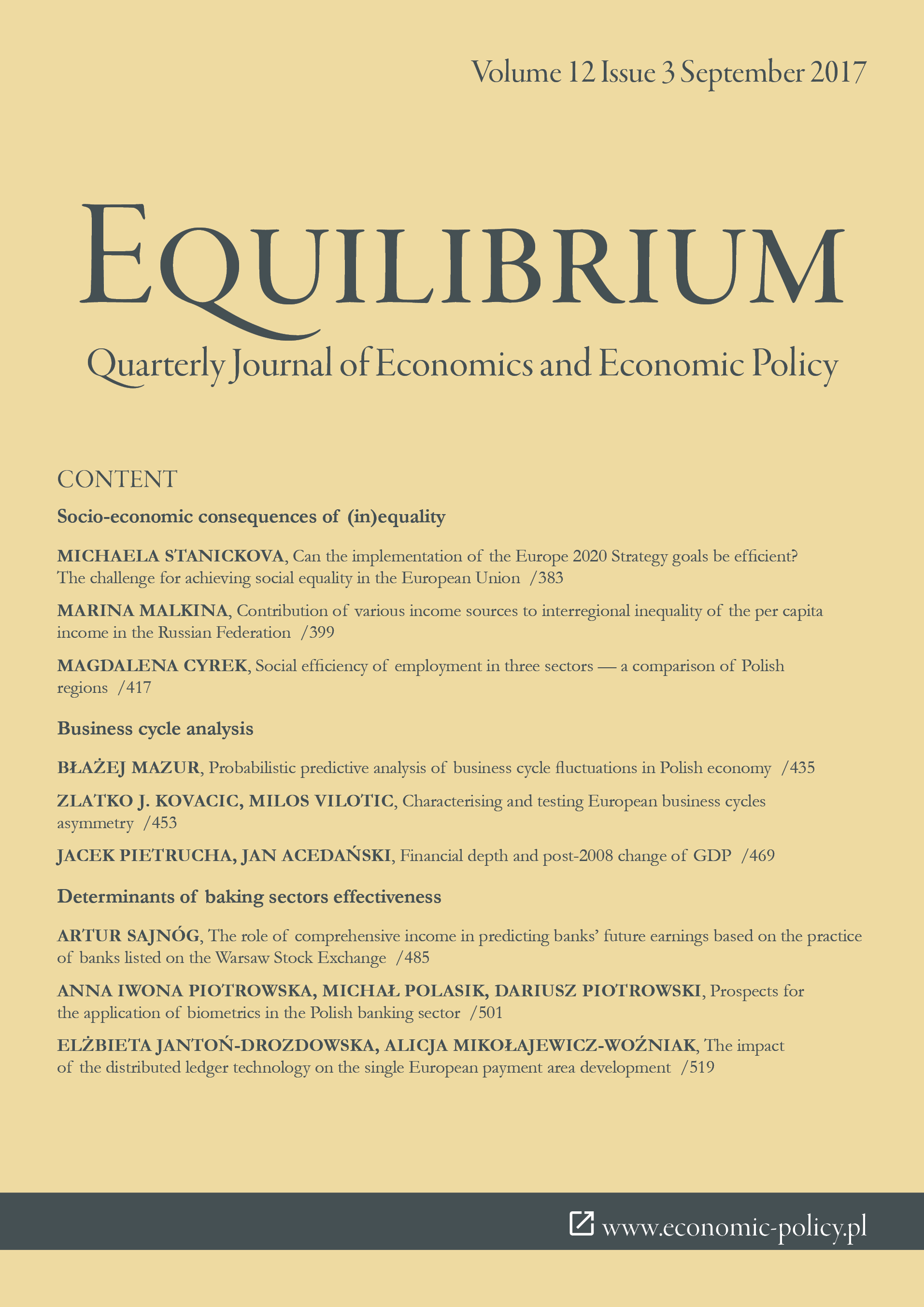Can the implementation of the Europe 2020 Strategy goals be efficient? The challenge for achieving social equality in the European Union
Can the implementation of the Europe 2020 Strategy goals be efficient? The challenge for achieving social equality in the European Union
Author(s): Michaela StaníčkováSubject(s): Geography, Regional studies, Labor relations, Economic policy, Present Times (2010 - today), Socio-Economic Research, EU-Legislation
Published by: Instytut Badań Gospodarczych
Keywords: DEA method; economic crisis; EU28; Europe 2020 strategy; social inequality;
Summary/Abstract: Economic crisis hit all the European Union Member States hard, with the impact of crisis varying considerably. The low growth performance in the EU has increased concerns regarding an increasing wage dispersion, income inequality at large, and social exclusion in line with poverty. Inequality should be seen as a cornerstone of both sustainable and inclusive growth under the Europe 2020 Strategy. Social inequality in the EU is a real problem, which hampers sustainable economic growth. Purpose of the article: The purpose of this study is to introduce evaluation of social development convergence and divergence trends between the EU Member States in the context of the Europe 2020 Strategy. The study gives an outline of the issues of the labor market and income disparities and poverty. Policymakers must be clear about what social objectives they are aiming to achieve, therefore special attention is paid to headline national goals of the Europe 2020 Strategy. Methods: The main task of this study is to assess social dimension and inequalities problems in the EU27 by applying Data Envelopment Analysis method, resp. time-series dynamic efficiency analysis in the form of output-oriented Malmquist Productivity Index. This study contains changes of key social equality indicators related to the Europe 2020 Strategy and compares objectives and general outlines of period 2010-2015, as well as the impact on national economics and living conditions. Findings & Vlue added: Results contain elements of typology premises of the EU28 and point to a large diversity in inequality patterns, as the Author observes both increases and decreases in inequality at the EU level. Recent changes in social inequality have been associated with the business cycle, particularly with the accessibility of the labor market and, of course, with income inequality. Additionally, the development challenges are discussed for improvement of the socioeconomic well-being of the EU and to avoid social disparities.
Journal: Equilibrium. Quarterly Journal of Economics and Economic Policy
- Issue Year: 12/2017
- Issue No: 3
- Page Range: 383-398
- Page Count: 16
- Language: English

